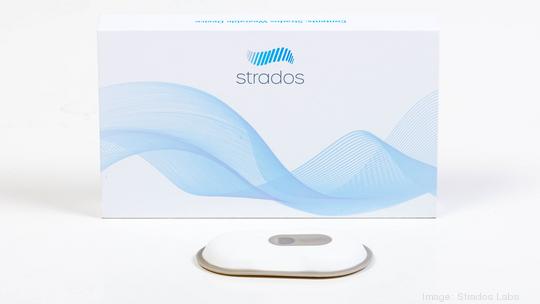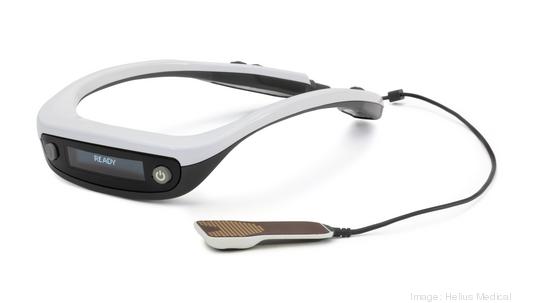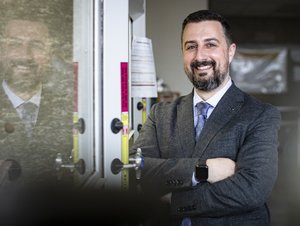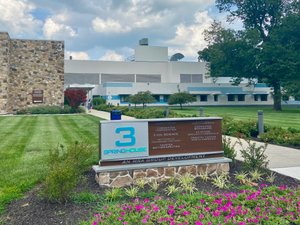
This week's Lab notes has items on one company's progress on its goal of finding a cure for hepatitis B, product deals by two medical device companies, two orphan drug designations and more.
Here's the roundup:
Arbutus Biopharma (NASDAQ: ABUS)
The Warminster biopharmaceutical company said it has dosed the first subject in its phase 1 clinical trial for AB-161, which it is developing for use in an all-oral combination regimen to potentially provide a functional cure for patients with hepatitis B virus (HBV) infections.
The study will evaluate the safety, tolerability, and pharmacokinetics of AB-161.
Arbutus CEO William Collier said the treatment is designed to inhibit viral replication by selectively restraining essential host proteins that are important in stabilizing hepatitis B virus RNAs from degradation.

Collier said the company expects to have initial data from the phase 1 study, for which it expects to enroll a total of 10 patients, in the second half of this year.
"We remain committed to advancing our pipeline of assets to develop a functional cure for chronic HBV," he said.
Hepatitis B is a potentially life-threatening liver infection caused by the hepatitis B virus that afflicts an estimated 290 million people worldwide including about 2.4 million people in the United States.
Strados Labs
The Philadelphia medical device company has entered into a partnership with Clario, a clinical trial management company, to offer its customers conducting clinical research studies access to Strados' RESP Biosensor System.

Financial terms of the deal were not disclosed.
The RESP Biosensor — a wireless and lightweight device that records pulmonary sounds for 24 hours continuously — is the only FDA-cleared pulmonary wearable device for use at home that allows researchers to objectively capture a variety of lung sounds such as cough, wheeze and crackles.
Achim Schülke, chief innovation officer at Philadelphia-based Clario, said using the RESP Biosensor will eliminate the need for subjective self-reporting, and introduce several new respiratory endpoints that will allow pharmaceutical companies to demonstrate drug effectiveness from different angles. That, he said, will enable greater flexibility in the protocol design of clinical trials and reduce burdens for clinical sites and patients.
"Our goal is to provide clinical trials with much stronger respiratory data," said Nick Delmonico, CEO and co-founder at Strados Labs.

Delmonico said his company's technology allows researchers to access lung sounds to determine when patients are coughing or wheezing, differentiate between cough type, and understand how symptoms progress over time in relation to medication use and other factors.
Helius Medical Technologies (NASDAQ: HSDT)
The Bucks County neurotech company entered into an exclusive distribution agreement with HealthTech Connex Inc. covering the portable neuromodulation stimulator (PoNS) device developed by Helius.
The PoNS is non-surgical medical device consisting of a controller and mouthpiece that delivers electrical stimulation to the surface of the tongue to improve balance and gait. The PoNS device is approved as a short-term treatment of gait deficit due to mild-to-moderate symptoms from multiple sclerosis.

The agreement, which replaces Helius and HealthTech Connex's prior clinical research and co-promotion agreement, grants HealthTech Connex the exclusive right to purchase, market, sell, and distribute the Helius PoNS device throughout the metropolitan Vancouver and Fraser Valley regions of British Columbia, Canada, subject to established minimums.
The deal's initial term is for five years, with the possibility to extend it to 10. Financial terms were not disclosed.
Fore Biotherapeutics
The Philadelphia-based precision stage oncology company received orphan drug designation from the FDA for Fore8394, its experimental treatment of primary brain and central nervous system malignancies.
Fore8394 is in phase 2 clinical testing as a potential treatment for patients with advanced, unresectable solid or primary central nervous system tumors harboring BRAF alterations.
Dr. Stacie Shepherd, chief medical officer of Fore Biotherapeutics, said the designation will help the company "continue to expedite the development" of its novel BRAF inhibitor.
Orphan Drug Designation is granted to drugs or biological products for the treatment of rare diseases or conditions that impact fewer than 200,000 people in the U.S. The designation provides companies with tax credits for qualified clinical trials, exemption from FDA user fees, and the potential for seven years of market exclusivity should the product receive regulatory approval.
Quick Hits
Philadelphia-based gene-editing company iEcure received orphan drug designation from the European Commission for the company’s lead product candidate GTP-506, an experimental treatment of Ornithine Transcarbamylase (OTC) deficiency. The rare genetic condition causes ammonia to build up in the blood. GTP-506 previously received Orphan Drug and Rare Pediatric Disease designations from the FDA.… Altasciences, a contract research organization based in Quebec, announced it has entered into a deal to use Philadelphia-based Proscia's Concentriq digital pathology software platform to help biotech firms accelerate their drug development process. Financial terms of the deal were not disclosed. … Newtown-based Onconova Therapeutics (NASDAQ; ONTX) has entered into a research collaboration with Pangea Biomed of Israel to identify biomarkers that respond to rigosertib. Rigosertib is Onconova's new drug candidate targeting different types of cancer. Pangea, based in Tel Aviv, specializes in combining machine learning and RNA analysis to expand access to precision oncology.







